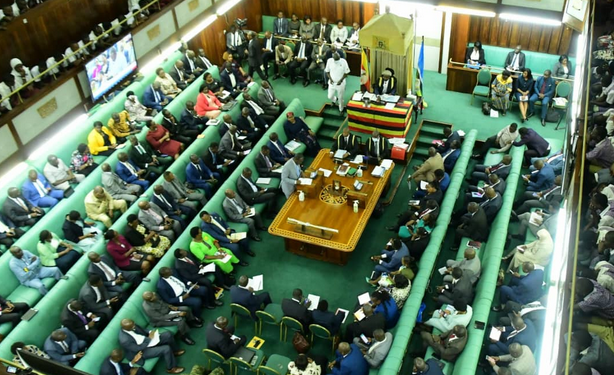By Peril Writer
In the corridors of power, where transparency should be paramount and accountability sacrosanct, Uganda’s Parliament finds itself ensnared in a web of contradictions and double standards. The recent revelations of extravagant spending by House leaders have peeled back the veil on a culture of opulence and disregard for public funds, while exposing the Speaker of Parliament’s reluctance to confront the issue head-on.
An examination of the Speaker’s response to these revelations reveals a troubling pattern of evasion and dismissal. Rt Hon. Annet Anita Among’s apparent fear of the unknown or her embrace of double standards has cast a shadow over the integrity of Uganda’s political system.
The #UgandaParliamentExhibition, a digital exposé, thrust into the spotlight a litany of previously hidden expenditures, laying bare the lavish lifestyles enjoyed by certain members of the House. From exorbitant service rewards to mind-boggling budget allocations for personal attire and extravagant travel schedules, the revelations have ignited public outrage and demanded greater scrutiny of parliamentary spending.
Yet, instead of embracing transparency and accountability, the Speaker has chosen to deflect and dismiss. Her refusal to engage in meaningful debate on the matter smacks of hypocrisy, particularly when juxtaposed with her past acknowledgment of social media as a catalyst for parliamentary action.
The Speaker’s dismissal of social media as an unreliable source of information stands in stark contrast to her actions just a year prior, when revelations about the deplorable state of Kampala’s roads, brought to light through an internet campaign, prompted parliamentary intervention and funding allocation.
The selective treatment of information from social media platforms raises troubling questions about the Speaker’s motives and the integrity of Uganda’s parliamentary processes. Is this a case of discrimination, where certain revelations are conveniently brushed aside, or is it a symptom of a deeper malaise—a fear of confronting uncomfortable truths?
The consequences of the Speaker’s inaction are far-reaching. Not only does it erode public trust in the institution of Parliament, but it also emboldens a culture of impunity among those in positions of power. The repercussions faced by opposition politicians implicated in the scandal highlight the political fallout and internal strife that accompany such controversies, underscoring the urgent need for accountability and integrity within Uganda’s political landscape.
In the face of mounting public pressure, the National Unity Platform (NUP) has emerged as a beacon of accountability, spearheading efforts to prompt debate and address public concerns over extravagant spending. Led by the Leader of the Opposition, Joel Bisekezzi Ssenyonyi, NUP’s advocacy signals a concerted effort to uphold transparency and restore faith in Uganda’s political institutions.
However, the Speaker’s continued resistance to meaningful dialogue on the issue threatens to undermine these efforts and perpetuate a culture of secrecy and unaccountability. As Uganda grapples with the fallout from this scandal, it is imperative that its leaders heed the calls for transparency and take decisive action to restore public trust and confidence in the integrity of its democratic processes.
The revelations of extravagant spending within Uganda’s Parliament expose not only a culture of excess and entitlement but also a troubling reluctance to confront the issue head-on. The Speaker’s evasion and dismissal of these revelations betray a disregard for accountability and transparency, raising serious concerns about the state of Uganda’s political system. Only through genuine dialogue and decisive action can Uganda hope to emerge from this crisis and rebuild public trust in its institutions.







Discussion about this post